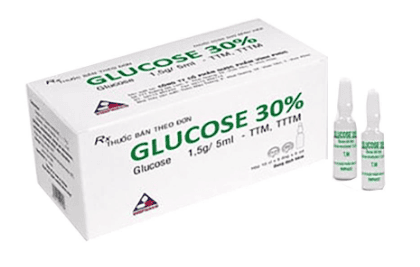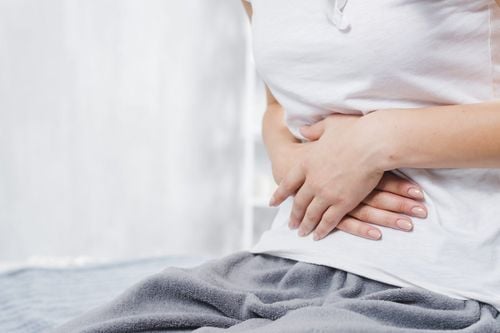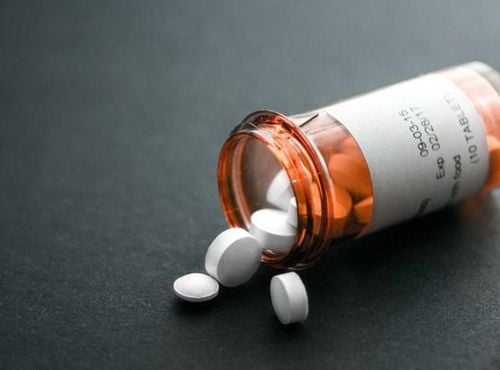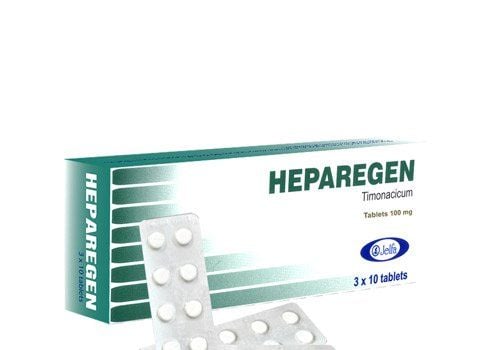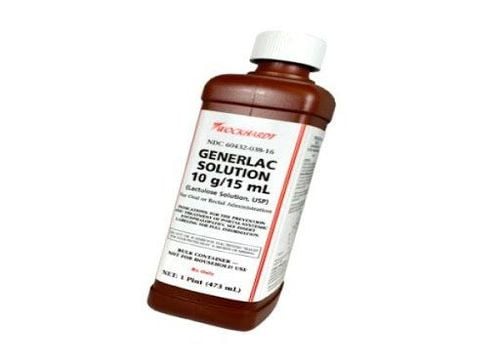This is an automatically translated article.
Intoxication is associated with acute intoxication caused by excessive alcohol intake. At that time, alcohol will affect the cerebral cortex leading to behavioral disorders such as involuntary talking, laughing, dizziness... To improve drunkenness, you can choose some foods healthy food to add to the next meal. This article will provide more information about this food.
1. Intoxication and its effects
The composition of alcohol often contains ethanol, also known as alcohol. Although the ethanol component in alcohol is used to make soft drinks, the ethanol compound itself can be toxic to users. Because when ethanol enters the body, it will act as an inhibitor and weaken the central nervous system, causing a decrease in neuronal activity. Ethanol poisoning can be acute or chronic and will depend on the amount of alcohol used. So when you drink a lot leading to drunkenness or addiction, it can have a negative impact on health.
Acute alcohol poisoning can be manifested through the initial stage of stimulation with actions such as talking a lot, disordered movement coordination, ... and then moving to the inhibitory phase with reactions. tendon radiation reduces or decreases consciousness or concentration, or dilates peripheral vessels... leading to situations such as hypotension or even death. For chronic poisoning can occur due to excessive alcohol consumption, causing weight loss, loss of appetite, liver and intestinal damage, liver degeneration, cirrhosis, mental disorders...
Dangerous cases More dangerous for alcoholics can be poisoned by methanol - the industrial alcohol added to alcohol products. Methanol compounds can be converted to formaldehyde by the enzyme acetaldehyde dehydrogenase, and these compounds cause liver and kidney toxicity, toxic hepatitis, severe acidosis, etc. Using alcohol containing methanol content at first. will often show signs of staggering, dizziness, nausea, ... like the feeling of drunkenness that makes users mistakenly think but actually due to chemical poisoning. If used for a long time with a lot of content, the body will fall into a state of cyanosis, coma, convulsions, electrolyte disturbances ...
2. The sequelae of drunkenness
The sequelae of binge drinking are often unusual in those who drink alcohol in large quantities. People who have experienced this feeling all report that they feel a feeling of fatigue, discomfort that lasts after a few days. Drinking too much alcohol can often experience these residual effects, which are not good for health.
The ability to absorb as well as tolerate alcohol in different amounts in each person. However, there will be one thing in common in people who drink a lot of alcohol that is the manifestation of sequelae after alcohol and depends on the amount of alcohol taken into the body. The symptoms of drunkenness do not last forever and will automatically disappear over time without any intervention, but if this happens regularly, it can have a significant impact on health.
The sequelae of drunkenness can appear in addition to the reason of using large amounts of alcohol and can also be caused by a number of habits such as: Using alcohol on an empty stomach, with the rate of alcohol absorption in the stomach will occur faster when the stomach is filled with food. Either using alcohol in combination with other stimulants or sleeping less after drinking alcohol or using alcohol with dark colors and may be caused by artificial coloring chemicals and flavors to cause sequelae of drunkenness. Or live in a family with an alcoholic... The sequelae of drunkenness can go away after a few days without any intervention. However, people with alcohol sequelae if they have the following symptoms should immediately go to medical facilities: shortness of breath, breathing disturbances, heart rhythm disturbances, coma, convulsions, seizures....

Say rượu có thể khiến bạn cảm thấy mệt mỏi vài ngày
3. Some healthy foods should be used after being drunk
Drunk is related to a physiological state when blood alcohol concentration is high and leads to negative health effects. For mild cases of intoxication, alcohol withdrawal can be done by using healthy foods to help improve drunkenness. But with cases of severe intoxication should be intervened by medical staff.
Some foods should be used in a drunkard's meal:
3.1. Yogurt What to eat after being drunk? The probiotic power of yogurt can help overcome digestive troubles caused by overeating. The “good” bacteria called lactobacillus found in yogurt can help balance the bad bacteria that cause gas and diarrhea. Moreover, yogurt also helps to reduce the unpleasant feeling of drunkenness. With the role of protecting the stomach lining, yogurt also helps slow down the absorption of alcohol and the calcium content in yogurt also helps to relieve discomfort after drinking in large quantities.
3.2. Banana Blood pressure increase after sodium increase? Control high blood pressure by eating a banana. Because bananas are high in potassium, they can lessen the effects of a high-sodium diet and help lower blood pressure.
Moreover, using bananas can answer the question of what to eat after drinking alcohol. When drinking too much alcohol makes the body hot, red body accompanied by sweating symptoms ... because the peripheral blood vessels dilate and cause the body to lose water and electrolytes. When the body uses bananas after being drunk, it can help replenish potassium along with other compounds that reduce the unpleasant feeling of drunkenness.
3.2. Oatmeal Porridge Oatmeal porridge can be made quite quickly and easily. Plus, you'll probably get 1 to 2 grams of fiber, and the compounds in oats help lower cholesterol by flushing it out of your system before it can. work.
3.3. Green Tea A cup of green tea is chock full of flavonoids - which help lower levels of LDL cholesterol, or "bad" cholesterol, and can also help return high blood pressure to normal.
3.4. Nuts Binge eating can increase your risk of heart disease, so eat a few small nuts to suit your body. Almonds, walnuts, peanuts and other nuts provide you with omega-3 fatty acids, unsaturated fats, and vitamin E - all of which help lower cholesterol and protect your arteries. yours.
3.5. Garbanzo beans, lentils, ... are known legume legumes and the source of the legume is quite rich. What should you eat after getting drunk? Choose your favorite pairing with legumes for a fiber boost. Beans also take time to digest, keeping you fuller for longer.
3.6. Eggs After vomiting drunk, what to eat? Eggs are packed with protein, vitamins B12 and D, riboflavin and folate – all of which may help reduce the risk of heart disease from overeating. Beat omelette with veggies for extra fiber. You can skip the yolk if you're worried about cholesterol.
In addition to providing nutrients in eggs such as protein, fat.., eggs also contain a large amount of cysteine - an amino acid with crystallization effect that helps to quickly reduce unpleasant sensations when acetaldehyde poisoning is present in alcohol. . Moreover, the amino acid composition of taurine in eggs also helps the body to quickly eliminate toxins in alcohol that can cause liver damage.

Ăn gì sau khi say rượu thì bạn có thể sử dụng trứng với tác dụng tuyệt vời
3.7. Spinach Your body has to work a lot after being drunk. Spinach is rich in vitamin B2, which helps in fat metabolism. B vitamins also help fight disease and infection to help you stay healthy for longer. It's best to eat leafy greens raw or steamed - boiling can strip away essential vitamins and nutrients.
3.8. Vinegar A mist of vinegar on your salad can help balance blood sugar after the highs and lows of binge drinking - especially if your super-heavy meal weighs like bread. Vinegar can lower your glycemic index after a high-carb meal. But do not overdo vinegar in your daily diet because using too much vinegar can upset your stomach.
3.9. Ginger Feeling bloated? Ginger helps relax the muscles in your digestive tract to expel gas. Make some ginger tea, spice up a salad with pickled ginger or mix some into a smoothie for a delicious treat.
3.10. The citrus family Citrus is sour, delicious, and packed with vitamin C, which boosts your metabolism and helps with fat digestion. What's more, citrus is a vitamin C booster that can give you more energy and lift your spirits. Eat whole fruit instead of juice to avoid added sugar and add fiber.
3.11. Flaxseeds Flaxseeds are an easy addition to foods you already eat, like oatmeal or smoothies. Flaxseeds don't change the flavor of foods, but they can add fiber and ALA, a fatty acid that can improve your heart health. Choose ground flaxseed over flaxseed oil for the full benefits of fiber.

Hạt lanh là thực phẩm cho thắc mắc "ăn gì sau khi say rượu"
3.12. Salmon Fish like salmon provide brain-boosting omega-3 fatty acids, but salmon also provides the body with protein. Protein helps keep your blood sugar steady and can even help prevent sugar spikes after a high-carb meal.
3.13. Broccoli Binge-eating disorder has been linked to depression, so it's best to incorporate broccoli into foods that can help fight boredom. Magnesium acts as a mood booster and broccoli is rich in magnesium. Using half a cup of cooked broccoli can provide the body with nearly 13% of the daily magnesium intake.
3.14. Drinking Water A good way to help your body get through hangovers is to get water into your system. Not only does it help you digest your food, but it also softens your stools so you can move things along. And if indigestion causes your stomach to tighten, try popping some bubbles. Melting water can help calm your hangover.
3.1.5 Tomato Tomatoes are also known as one of the very good alcohol-reducing foods. The cause of drunkenness is because the body loses a large amount of trace elements such as potassium, calcium, sodium ... causing fatigue and sluggishness for drinkers. Using tomato juice can help the body detox from alcohol in a simple way. In addition, tomatoes also contain many other nutrients that can help a drunk person's body recover quickly.
Please dial HOTLINE for more information or register for an appointment HERE. Download MyVinmec app to make appointments faster and to manage your bookings easily.
Reference source: webmd.com




